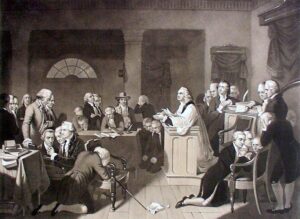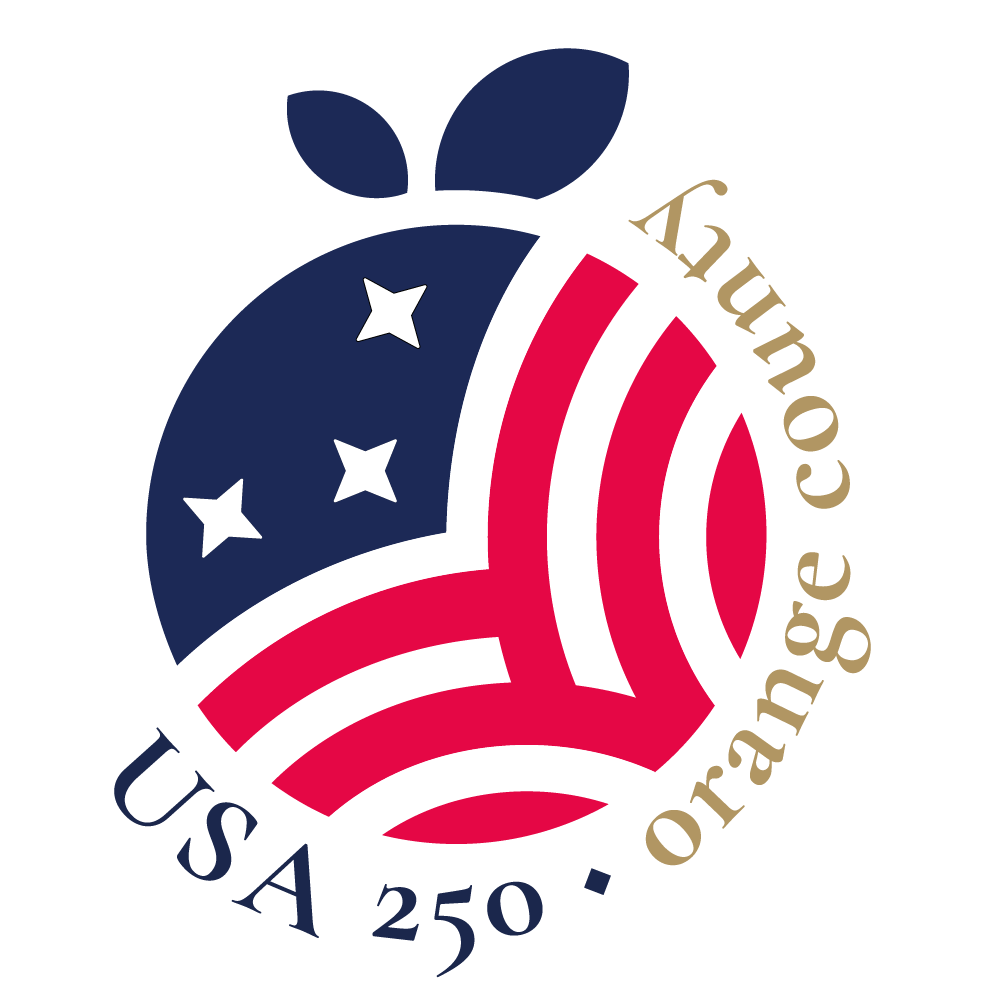
In early September 1774, the First Continental Congress met in Philadelphia to consider a collective response to the British government’s coercive actions. A little more than a year and a half later, the Second Continental Congress would declare independence from Britain and issue the Declaration of Independence – an event whose 250th anniversary we will celebrate on July 4, 2026.
On that first day, September 5, 1774, the delegates met at the City Tavern, then walked to Carpenter’s Hall where they presented their credentials and agreed to meet the next day to create committees and draw up rules to govern the on-going proceedings.
Among the delegates present were John Jay, Richard Henry Lee (who would later make the motion declaring independence), Peyton Randolph, Patrick Henry, Roger Sherman, George Washington, John Adams, and his brother Sam Adams.
Fully aware of the danger before them as they prepared to confront the British troops already on their way to force them into submission, Thomas Cushing, a delegate from Massachusetts, moved the Congress should be opened each day with prayer. New York’s John Jay and Mr. Rutledge of South Carolina objected because, as they said, “we are so divided in religious sentiments. Some Episcopalians, some Quakers, some Anabaptists, some Presbyterians, and some Congregationalists, that we could not join in the same act of worship.”
Then Samual Adams rose. “He was no bigot,” he said, “and could hear a prayer from any gentleman of piety and virtue who was at the same time a friend to his country.” He then nominated the Rev. Jacob Duche, an Anglican minister, to offer a prayer the next morning when Congress would reconvene.
Among those who recorded the event in their letters and journals was John Adams who described the event in letters to his wife Abigail. Duche, he reported, read a brief prayer from the Anglican prayer book, followed by a reading of the 35th Psalm. Then, as Adams wrote, “Mr. Duche, unexpectedly to everybody, struck out into extemporary prayer which filled the bosom of every man present…It was enough to melt a heart of stone.”
Of the 35th Psalm, Adams wrote to Abigail, “You must remember this was the next morning after we had heard of the cannonade [the heavy gunfire] of Boston. It seemed as if Heaven had ordained that Psalm to be read on that morning.”
Excerpts of that Psalm include the following:
“Plead my cause, O Lord, with those who strive against me; Fight against those who fight against me. Take hold of shield and buckler, And stand up for my help. Also draw out the spear, And stop those who pursue me. Say to my soul, “I am your salvation.”
